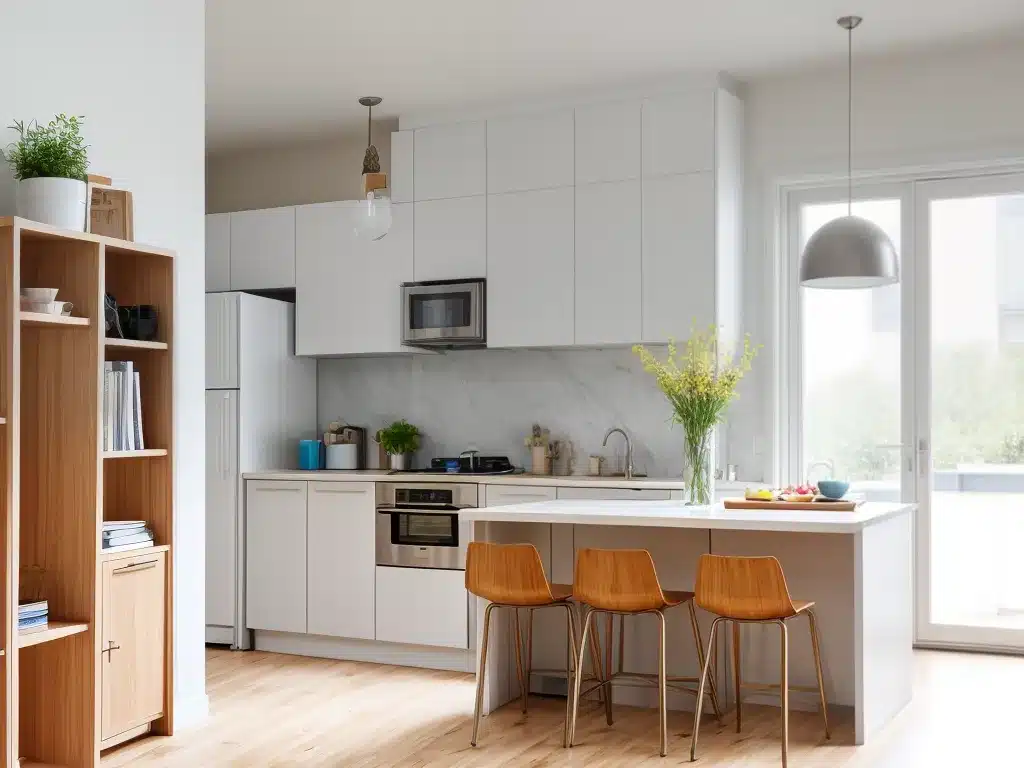Allergies can make life miserable. As an allergy sufferer myself, I know how frustrating it can be to deal with symptoms like sneezing, coughing, itchy eyes, runny nose, and more. The good news is there are many things you can do to reduce allergen exposure in your home and create a more comfortable environment. Here’s how to make your home an allergy-free zone:
Keep Your Home Clean
Regular cleaning is key for allergen control. Here are some tips:
-
Vacuum carpets, upholstery, and other fabric surfaces at least once a week using a vacuum with a HEPA filter. This helps remove dust mites, pet dander, pollen, and other allergens.
-
Dust frequently using a microfiber cloth. Make sure to dust surfaces like shelves, lamp shades, ceiling fans, and picture frames where dust accumulates.
-
Wash bedding weekly in hot water to kill dust mites. I also recommend encasing pillows and mattresses in allergen-impermeable covers.
-
Disinfect hard surfaces like countertops, floors, and tables regularly to remove allergens like pet dander and pollen that may have settled there.
-
Clean carpets and rugs thoroughly at least twice a year using steam cleaning or deep cleaning methods.
Control Mold and Mildew
Mold and mildew can trigger allergy and asthma symptoms. To prevent growth:
-
Use exhaust fans in kitchens and bathrooms when cooking, showering, or bathing. This reduces moisture.
-
Fix any leaks and dry out damp areas immediately.
-
Make sure air conditioning units are properly draining outside, not inside.
-
Use a dehumidifier to maintain humidity under 50%.
-
Clean any existing mold properly using water, detergent, and a bristle brush. Never mix bleach and ammonia!
Limit Fabrics and Clutter
Fabric-covered surfaces like curtains, pillows, and stuffed furniture are magnets for dust and allergens. Consider replacing them with leather, wood, and other materials. Also:
-
Remove unnecessary clutter like knickknacks, books, and magazines where dust can accumulate.
-
Store seasonal items like holiday decorations in allergen-proof containers when not in use.
-
Wash plush toys weekly in hot water or keep them out of bedrooms.
Use Air Purifiers
Air purifiers with HEPA filters are proven to reduce airborne allergens like pollen, mold, dander, and dust. I recommend having one in bedrooms and main living areas.
-
Replace filters every 3-6 months per manufacturer instructions.
-
Run purifiers continuously at the proper fan setting.
-
Position purifiers away from walls and keep them unobstructed.
Make Your Bedroom an Allergen Haven
Since you spend lots of time in the bedroom, making it as allergy-free as possible is important.
-
Encase mattress and pillows in allergen-blocking covers as mentioned above.
-
Remove carpeting and install hard flooring if possible.
-
Use allergen-proof bedding like micromink pillowcases and comforters.
-
Reduce clutter and fabric surfaces.
-
Run an air purifier in your bedroom 24/7.
-
Keep pets out of the bedroom since they introduce dander and pollen.
Control Pet Allergens
For pet owners, reducing dander is vital. Here are some suggestions:
-
Brush cats and dogs regularly outside to remove dander.
-
Bathe pets weekly to wash away dander. Use allergen-reducing shampoos and rinses.
-
Restrict pets from bedrooms, upholstered furniture, and carpeted areas.
-
Clean surfaces like floors, countertops, and vents frequently to remove dander.
-
Switch your HVAC air filter to a high-efficiency pleated filter.
-
Vacuum twice weekly using a vacuum with a HEPA filter.
Monitor Pollen and Mold Spore Levels
Staying informed about environmental allergen levels can help you limit exposure on high days.
-
Check pollen and mold forecasts daily and limit time outdoors when levels are elevated.
-
Close windows and run A/C to filter indoor air when outdoor allergens are high.
-
Shower and change clothes after going outside to remove pollen.
-
Limit outdoor activities like gardening when pollen is high.
See an Allergist
Seeing an allergist can provide relief through customized treatment plans like:
-
Allergy testing to identify specific environmental allergen triggers
-
Allergy shots (immunotherapy) to help build immunity to allergens over time
-
Prescription medications like antihistamines, decongestants, and nasal sprays
-
Advice on effective over-the-counter medicines and supplements
With diligence and the right strategies, you can turn your home into a more allergy-friendly space. Focus on frequently cleaning surfaces, reducing dust/fabric, controlling humidity and air quality, limiting pet dander, and monitoring outdoor allergen levels. Creating an allergen-free zone takes work but offers big rewards in terms of comfort.







